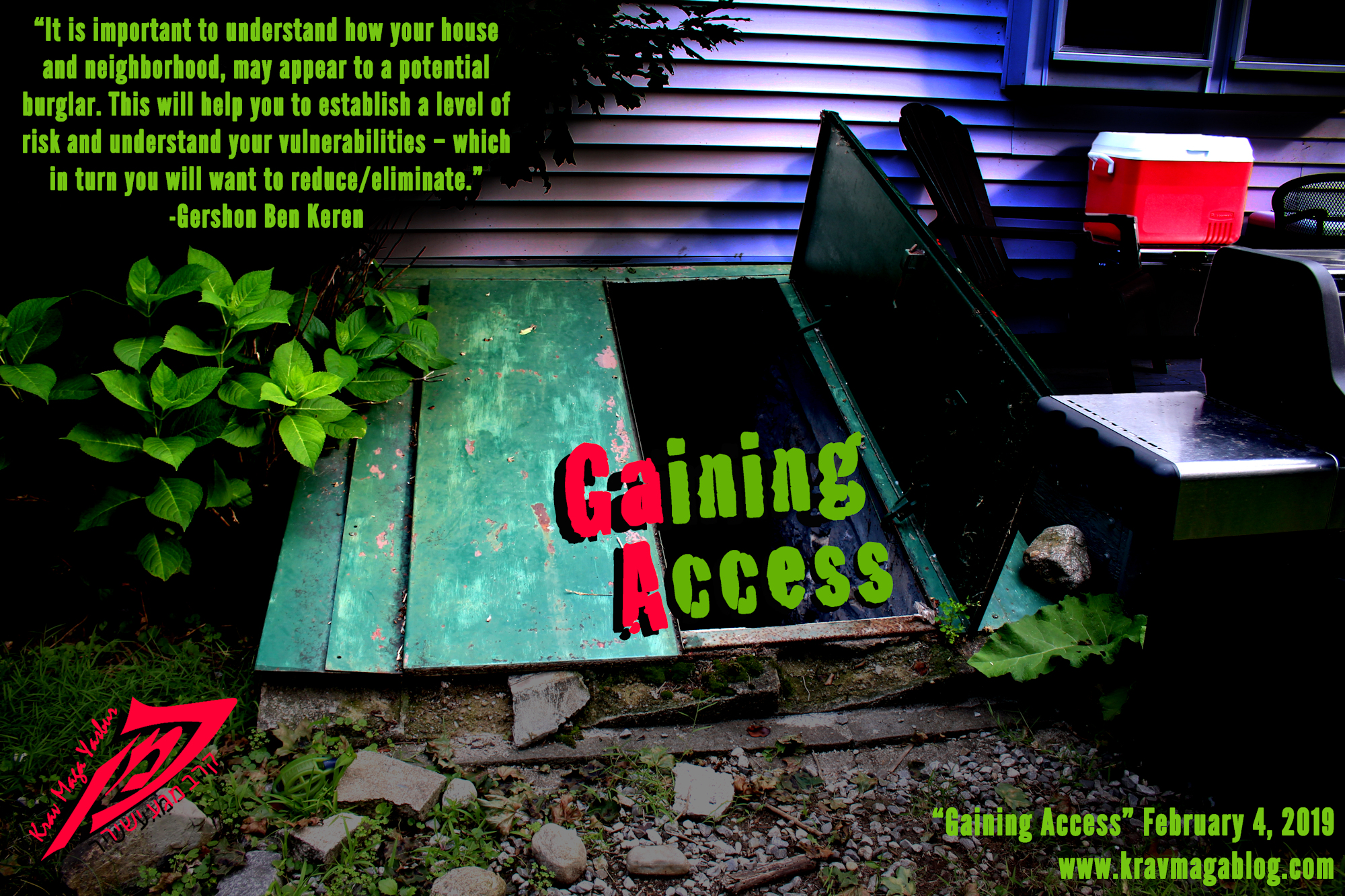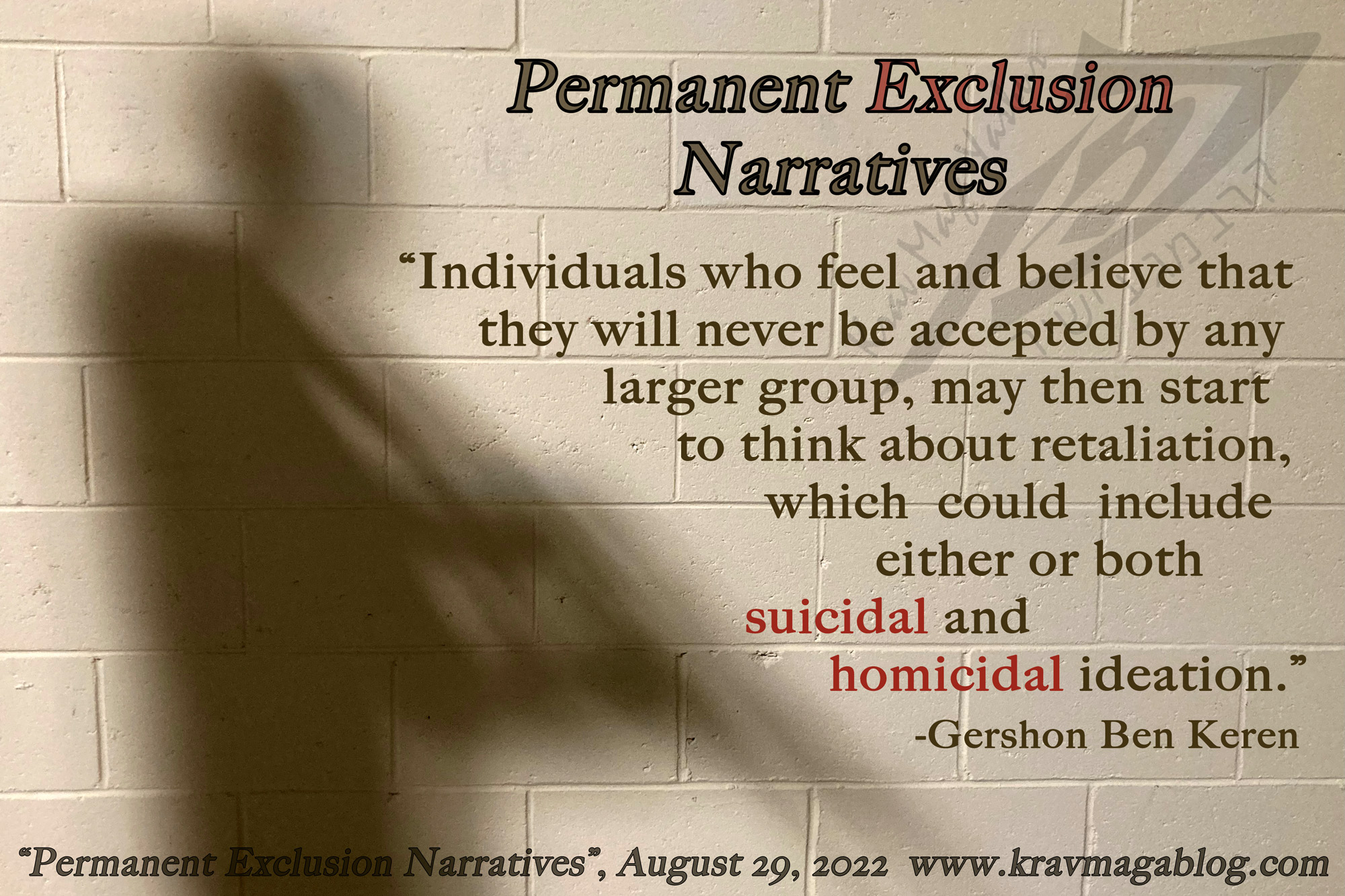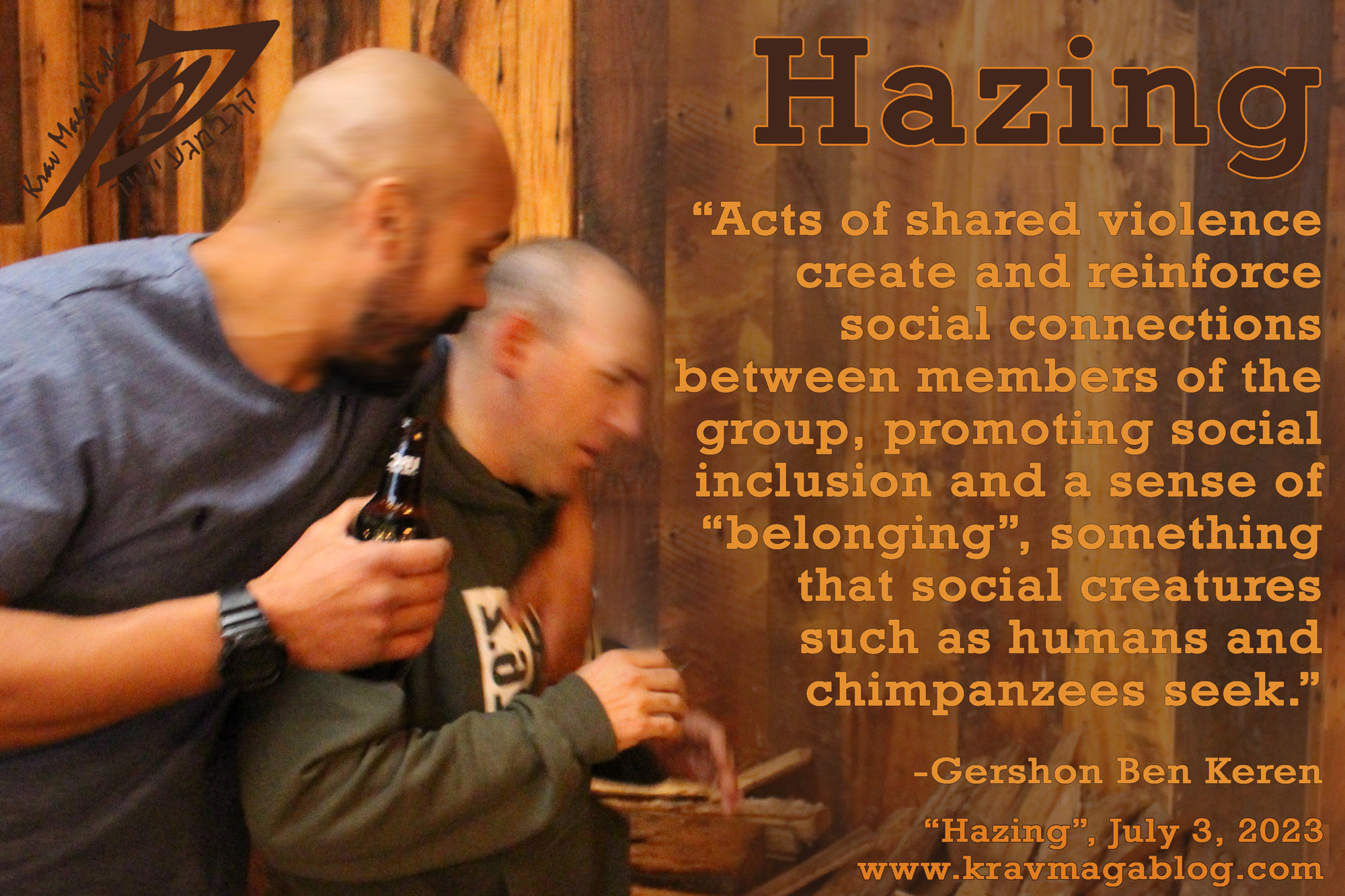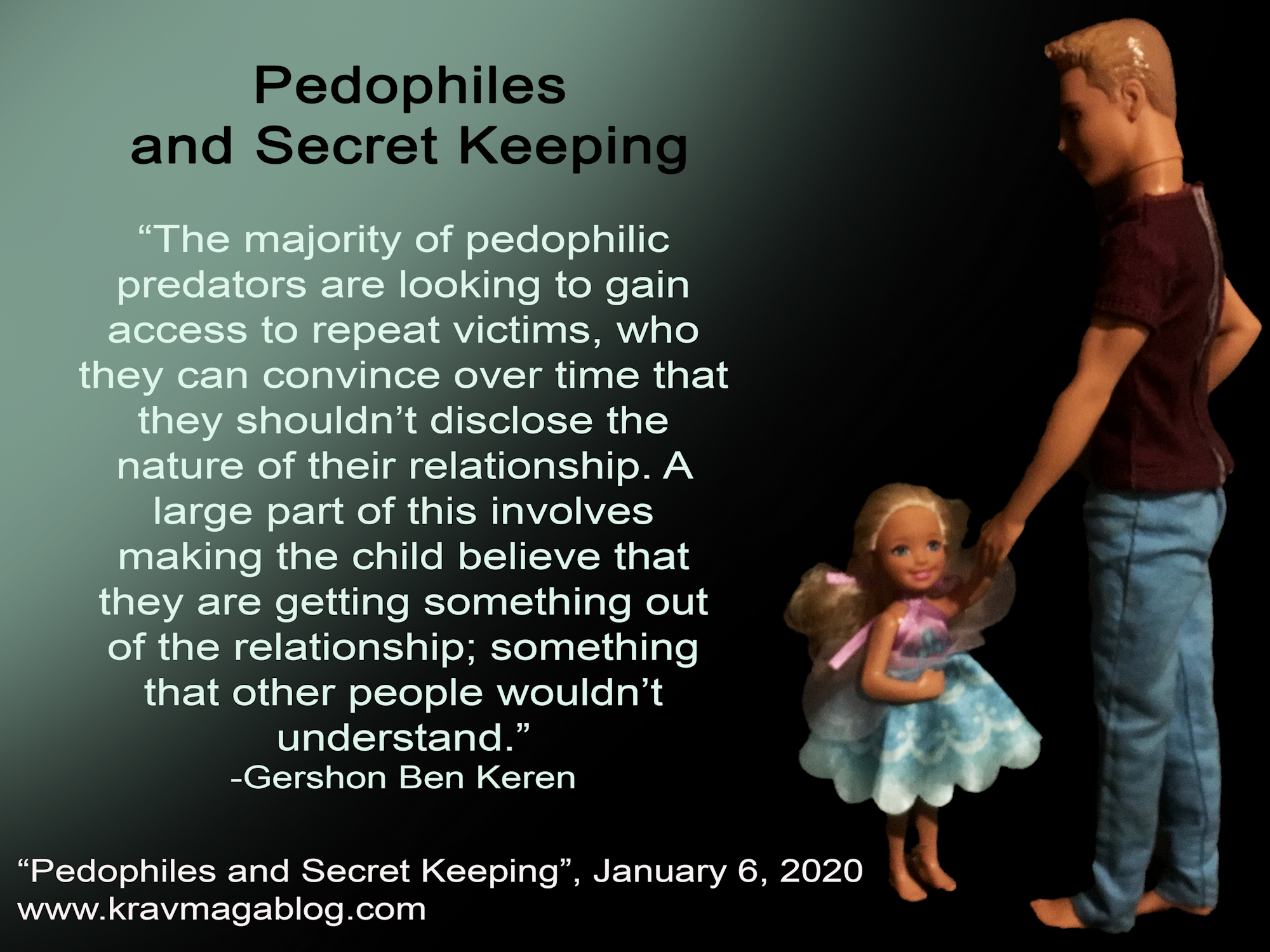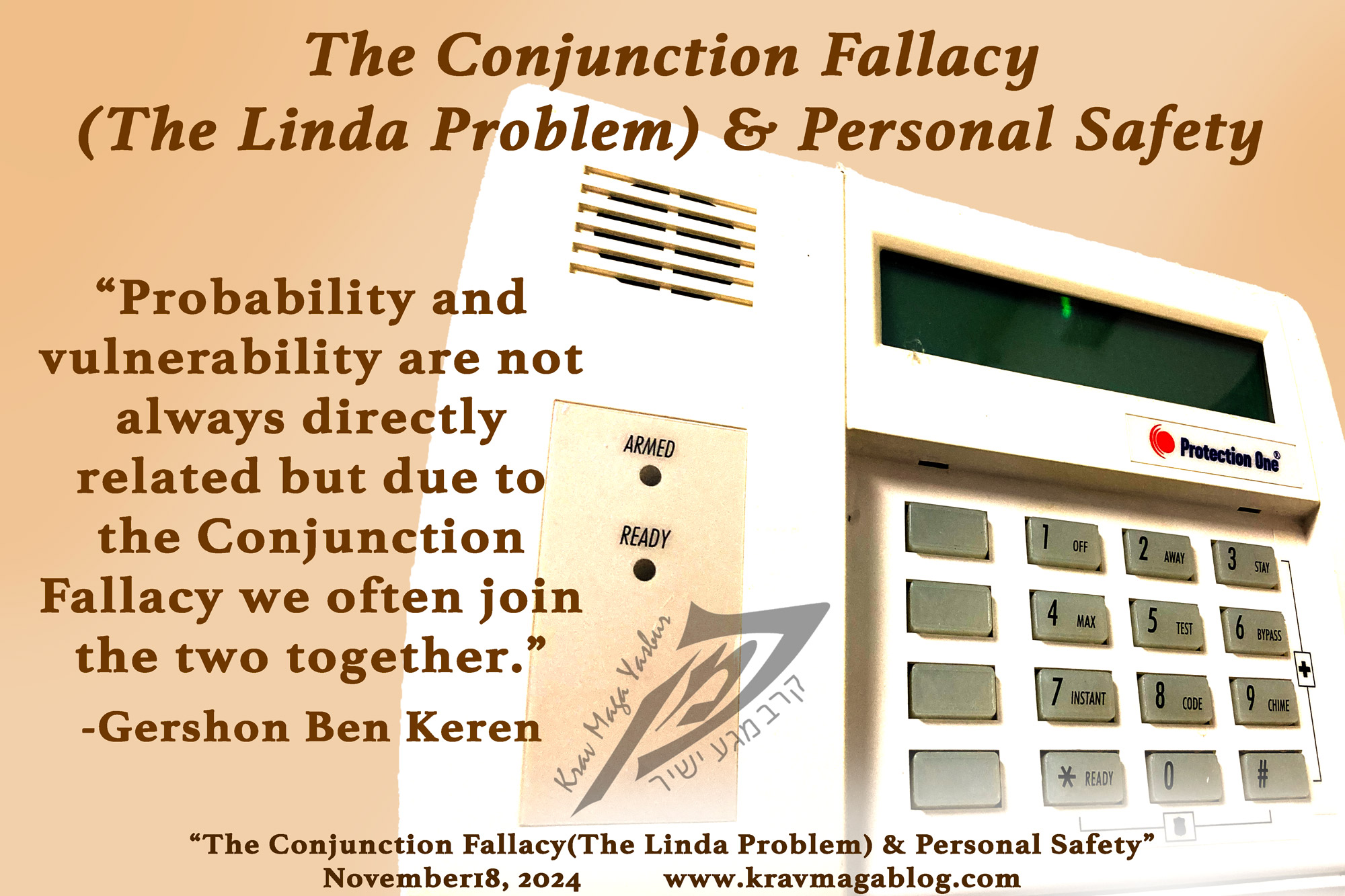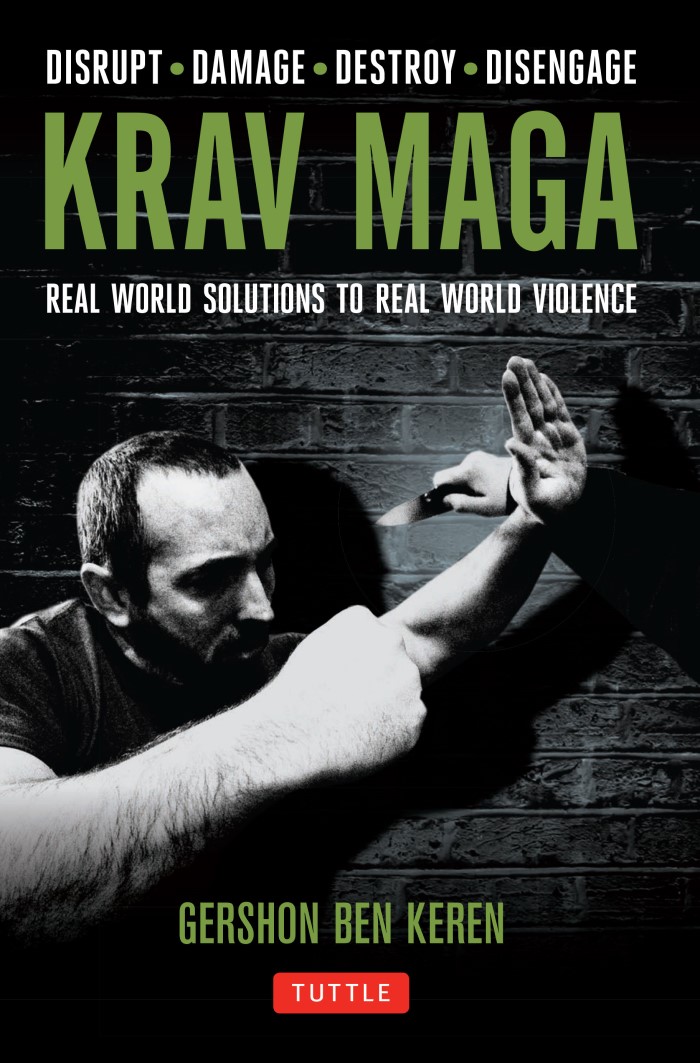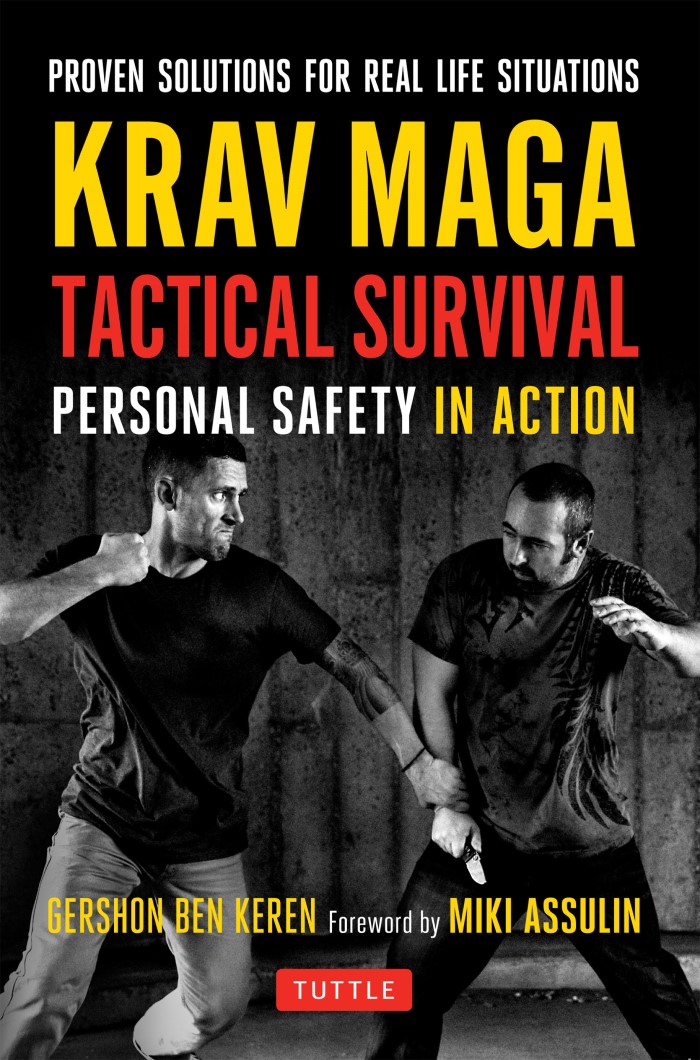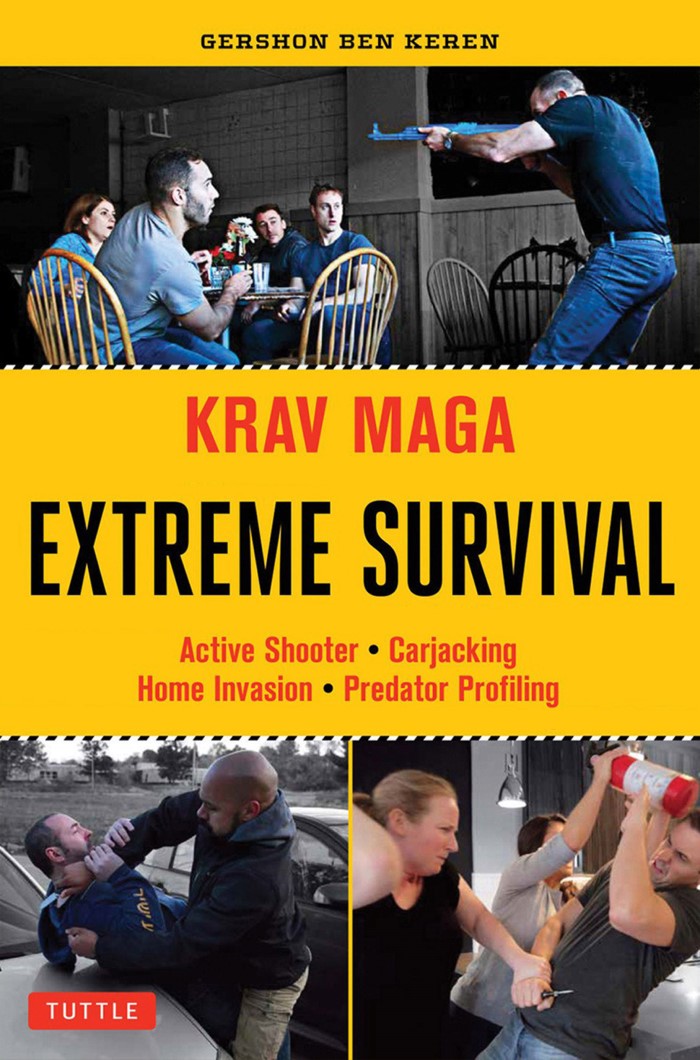Pedophiles & Secret Keeping, is an article written by Gershon Ben Keren, a 5th Degree Black Belt in Krav Maga, who teaches Krav Maga in Boston, MA. He has also authored three Amazon best-Selling Books on Krav Maga.
Most child molesters don’t require physical force or even the threat of violence to compel their victims to engage in sexual acts with them. This is not to say that those they target are willing or wish to engage in such acts but rather that compliance is gained through a mix of psychological and emotional pressure – that may be so strong as to convince the child that they are actually the instigator of the relationship. Many predatory pedophiles are skilled social players who can convince both their victims, and their victims’ guardians, that the relationships between all parties are both healthy and natural e.g. they will lead the child to believe that their relationship with them is so special that it must remain secret, and convince the parents/guardians that their interest in their child is due to external factors, such as they believe them to be a gifted in sports, music, or similar etc. Both the victim and the guardians are groomed to believe that there is nothing wrong; and in many cases, even when the child complains about the abuse, the parents/guardians will side with the abuser, because they have been so conditioned to accept the perpetrator’s account of events. If we are to be successful in identifying those who target our children for sexual abuse, we should understand that it is not only our kids who will be targeted and groomed, it is ourselves as well. If we don’t acknowledge this, then we are at risk of creating a massive blind spot in which such predators can operate. We may like to believe we are good judges of character and are able to spot those who are trying to pull the wool over our eyes, however a large number of child molesters, live their lives 24x7 planning how they can commit their crimes undetected, and have many years of experience doing so, and so we should acknowledge straight out of the gate that we are the ones at a disadvantage in trying to predict and identify those who may be attempting to groom both ourselves and our children.
The majority of pedophilic predators are looking to gain access to repeat victims, who they can convince over time that they shouldn’t disclose the nature of their relationship. A large part of this involves making the child believe that they are getting something out of the relationship; something that other people wouldn’t understand. At a superficial level, this may involve the giving of gifts, and/or allowing the child to partake in “adult” activities such as smoking and drinking, etc., something that other children aren’t allowed to do and that will make them feel special and unique – the molester may even tell the child that they have chosen them because they recognized that they were different and more mature than other children, etc., however, this must remain secret because, both parties would get into trouble should somebody find out. The child may then be introduced to other “adult activities” such as exposing genitalia to each other, inappropriate touching and fondling, before they are ready to engage in penetrative sex, etc. Each new step is presented as a reward for keeping the “secret”, and as a recognition that the child is special, different and more mature than other children their age, etc. Alcohol and/or drugs may be used to both lower inhibition and physical discomfort whilst demonstrating how adult-like the abuser sees their victim. It should also be recognized that although prepubescent children may not recognize and understand sexual pleasure, they can experience physical pleasure, which can send them very confusing messages when a molester “explains” to them that this physical arousal shows that they like what is happening to them – this in turn can lead to feelings of guilt as the child is led to believe that they are in some way responsible for the abuse i.e. that they actually enjoy it, even though they don’t feel that they do, etc. This confusion is often enough to keep a child from telling somebody about what is happening.
Pedophiles and child molesters operate in the world of secrets, and they will often test their potential victims by giving them small secrets to keep; things which would be inconsequential should they be found out or discovered e.g. they might tell a child that they have got some small gift for their parents but this needs to be kept secret, etc. If the child keeps this secret, they might be trusted with larger more significant ones. During this process, the child comes to believe that they are special because they can be trusted, and the potential abuser starts to understand to what extent they can push the child’s boundaries. Whilst they engage in this process, they may present to the parents/guardians a complete disinterest in the child or regularly note how interested the child appears in them; both methods are designed to show that it is the child not them, who is driving and pushing their relationship. There are two ways to combat these parallel processes. One is not to share secrets with your child, and to explain to them that ALL secrets are bad e.g. don’t share a secret with your child such as what their brother/sister is getting for their birthday, etc. This may seem extreme and harsh, however introducing the idea of “good” and “bad” secrets is something that a molester can exploit – and it would be naïve to think that our children will be able to tell the difference where a skilled social predator is involved. The other way to both deter a sexual predator, and target-harden your child is to let them know – and those that they interact with - that they are special and valued; that their thoughts and ideas are valued, and have an appropriate place in the adult world. This may also involve explaining why alcohol is restricted for adult use – because of its impact on the developing brain, etc., thus equipping a child with a response as to why they shouldn’t accept alcohol from an adult – or anyone else.
We cannot expect our children to understand or recognize a predator’s grooming process – that is more information than they need to know. However, we can explain to them that an adult shouldn’t want/have to keep secrets with them, and that if somebody does – regardless of who it is – they should share that secret with us. If/when they do, we should not be embarrassed or awkward about confronting that adult, and explaining our position on “secrets”; that doesn’t mean we have to accuse another adult of predatory behavior, but rather to let them know that it’s one of the rules/boundaries we have concerning them. It also lets any potential predators know we have an open relationship with our children. We should also demonstrate to those around us that we are involved parents. This can be as simple as not just dropping our kids off at sports practice – despite how hurried we may be – but making sure that we interact with the adults who will be responsible for them (and do the same when we pick them up).
This is the continual and on-going part of the way that we should be protecting our children. The importance of Stranger-Danger training is a valuable piece of the child self-protection jigsaw, but we should not see it as the be-all and end-all of child safety. Understanding that most child predators groom rather than abduct their victims, and that we are involved in that process, means that we should take an interest in those that have an interest in our children; regardless of the relationship that we have with them.
0 COMMENTS
